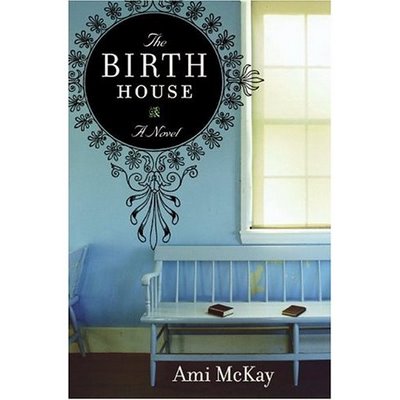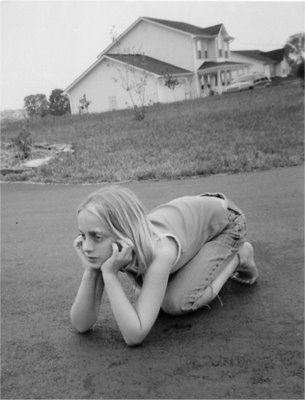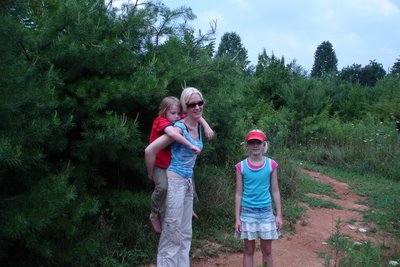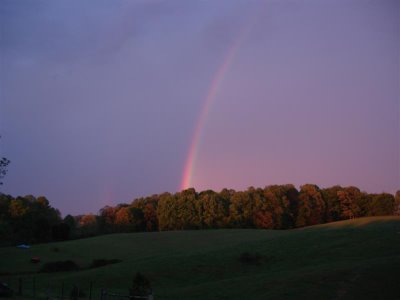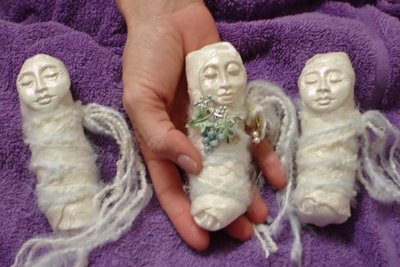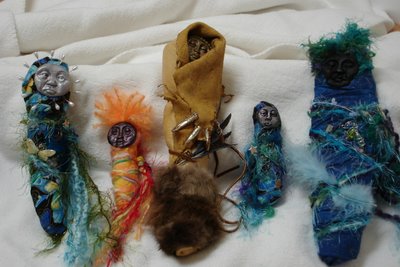Ami McKay interview part II
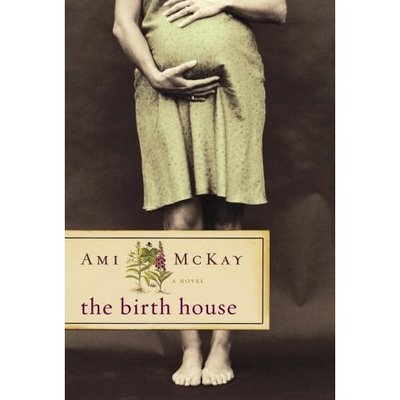
Ren:
I totally agree with you about the importance of play,
for both ourselves and our children. It seems to be
undervalued in our society all to often!
Something I've noticed about highly creative people,
is they all seem to have some kind of support network.
What kind of support network do you have? What nourishes
your muse beyond the walls of your workspace?
Ami:
My number one muse is my husband, Ian. He's always
been supportive of my writing, (in fact, it's his
fault I set out to start a career as a writer in
the first place!) He loves literature and is
beautifully creative as well, so his feedback means
a lot to me. Not only does he make sure there's plenty
of room in our homelife for my writing, but he's my
first reader and a fantastic cook!
I also have a phenomenal group of women in my life.
Locally, there's a group of mothers who I hike, gab,
and drink tea with - they are all very creative -
artists in their work and in their lives. It's been
a great source of inspiration to see other moms
making art and following their dreams! And, back in
the States I have my touchstones; my mom, my dad, my
siblings, my best friends from university. We talk on
the phone or see each other when we can and it always
feels like 'home.' Ultimately, it's a fairly small
network, but these are the people who give me wings.
I hope I do the same for them.
Ren:
I can just about bet that you do!:)
There is a quote by Anais Nin: "When I don't write,
I feel my world shrinking. I feel I am in prison. I
feel I lose my fire and color. Writing is a necessity,
as the sea needs to heave, and I call it breathing"
Is that true for you also? How would you describe what
writing means to your life?
Ami:
I'm definitely not the same person (not a whole person) if
I'm not writing on a regular basis. (My husband was the first
to point this out to me!) I get terribly unfocussed and, much
like Anais Nin is saying, I find it difficult to 'breathe.'
Writing is an essential part of my life - no matter what happens
with the publishing side of it, I'll always write. I may have
mentioned it before, but I can't think of any better way to
put it, I make sense of things (life, the world, past, present
and future) through writing. When my pen touches the paper,
it's like a key in a lock - a lock that's had a hold on my
understanding. (Of course, some days I feel more like a thief
with a thin, little pick, wiggling away at the lock.but that's
exciting too.)
Ren:
A novel seems a daunting task to most of us. What are some of
the baby steps that built up to a full-scale novel? How do you
take that first step?
Ami:
I'd love to take a poll, asking novelists if their first novel
had started out as such. To be honest, I didn't know what I
was making when I first started working on what would eventually
become The Birth House. If someone had said, "I think you're
writing a novel." I probably would have had a really good laugh.
At first, I was just collecting stories. I recorded women in my
community talking about birth and what they could remember of
the midwife who had lived in my house. I recorded the midwife
who assisted at my son's birth, having her recall her memories
of the day he was born. I put these things together with music
and narrative I'd written and created a radio documentary for
CBC radio.
The stories stayed with me and wouldn't leave me alone. I moved
on and wrote a couple more radio documentaries, but I couldn't
stop thinking of the midwife and the things I hadn't been able
to uncover about her life. What had brought her to this role
in the community? What choices did a young woman have during
the WWI period? What did her life mean to me today?
I got up from bed one night and wrote the prologue to The
Birth House. (I didn't know that's what it was when I wrote
it.) I played with putting a lot of things around it and
wrote quite a bit of narrative before I realized I what I
was doing. (And then I thought, heaven help me, I'm writing
a novel!)
Ren:
I love that you didn't realize you were writing a novel
to begin with. It give me hope!:)
You've been an accomplished writer for a while and now a
successful novelist. The Birth House has been on several
best seller lists in Canada, just released in the U.S. on
August 22nd and is currently being printed in several other
countries. What things have surprised you about success?
What are the best and the most difficult parts about it?
Ami:
It's all feels new to me and I hope that it always will.
I've tried very hard not to have expectations about what
should or shouldn't happen with my writing. (Heck, I try
to have that in every aspect of my life, but I'm still
working that out!) Probably the most difficult part of my
journey to publication was in letting the story go. I spent
hours and hours working on it alone, then with editors, but
then there came a point where there was nothing more I could
do, it was done. After that, it belongs to the readers.
The thing that has meant the most to me with the publication
of the book in Canada, and now in the US, the UK and other
parts of the world, is that readers are connecting with the
story and they are sharing it with others. It's been chosen
by many book clubs (and other groups), and it's been sparking
thought and conversations along the way! A Canadian reader
just sent a copy to a friend in Australia. A father from Nova
Scotia took a copy over to Egypt as a present for his daughter
after she had her first baby. Grandmothers are asking me to
include their daughters and granddaughters names in my
dedications so they can pass the book down. It's beautiful
and humbling all at once.
Ren:
Those are some beautiful connections. The book holds
powerful messages though, so I can see why it's spawning
those kind of sweet and rich connections to your readers!
Thank you so much for sharing your wisdom and insights with
us here. It's been a lot of fun reading your views and
learning more about The Birth House (which I am enjoying
immensely by the way....half way through now).
Here's to a #1 spot on the best seller lists in the
U.S.!! Wishing you all the best Ami.



